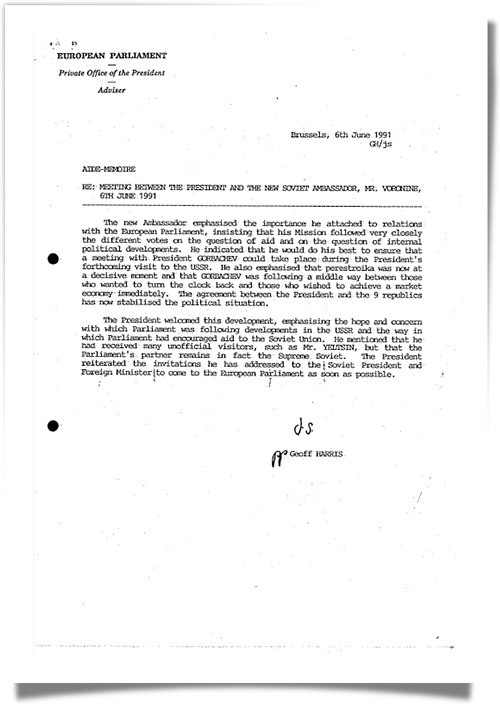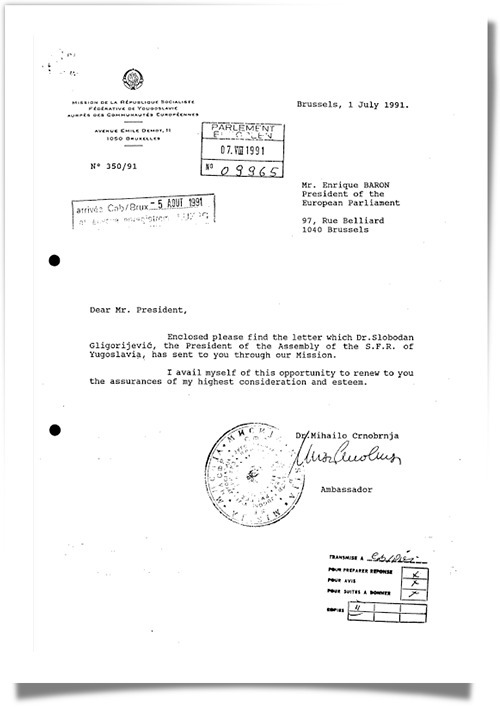The fall of the Berlin Wall and the reunification of Germany was the most significant event of the beginning of Enrique Barón Crespo's term of office and was intimately linked to the process of building the European Union. While this was significant in its own right, the fall of the Wall had unprecedented ramifications for international relations, signalling the decline of the USSR. At the same time, Europe saw the violent break-up of Yugoslavia.
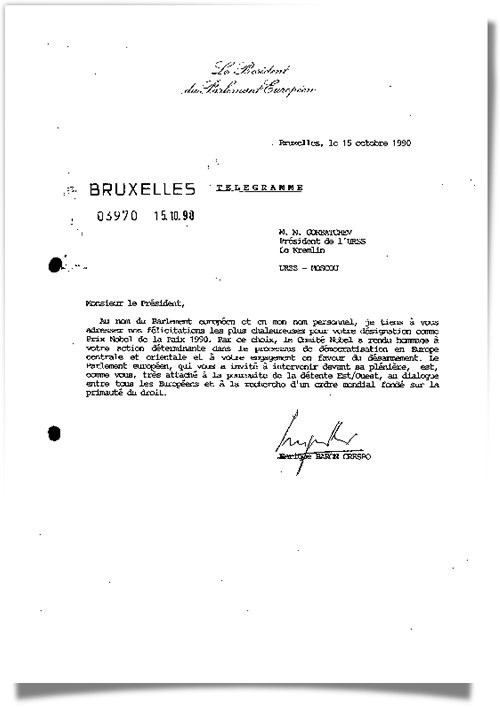 A 1990 telegram from Enrique Barón Crespo to USSR President Mikhail Gorbatchev congratulating him on being awarded the Nobel Peace Prize (Download the telegram here in French - PDF)
A 1990 telegram from Enrique Barón Crespo to USSR President Mikhail Gorbatchev congratulating him on being awarded the Nobel Peace Prize (Download the telegram here in French - PDF)
The Yugoslav tragedy
The conflict that tore Yugoslavia apart in the early 1990s was a stain on Europe’s history and had a profound effect on Enrique Barón Crespo. It created deep disagreements in the European Community and particularly within the Council of Ministers, which split along the lines of historical loyalties.
“Your country’s parliamentary institutions can and must play a decisive role in this dialogue. In essence, these institutions are places of peaceful confrontation of divergent positions and of seeking solutions preserving the rights of minorities, the only weapon of parliaments being speech. The European Parliament is ready to cooperate in the establishment of such a dialogue, if you wish, and is preparing to take initiatives in this regard, particularly in view of the examination of the Third EEC/Yugoslavia Financial Protocol.”
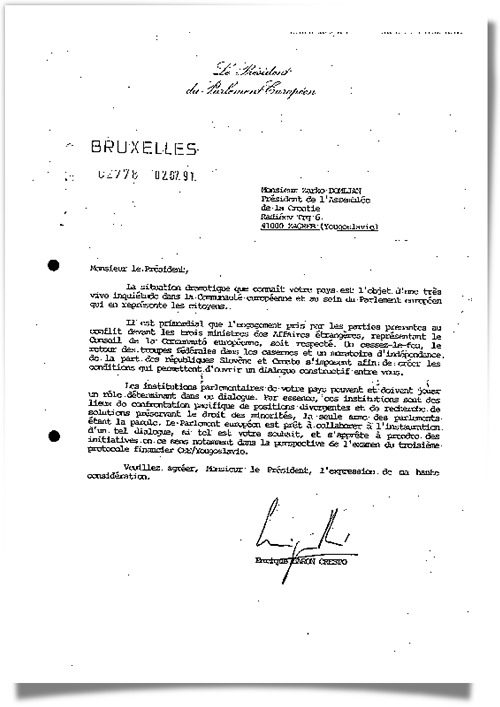
Enrique Barón Crespo chaired and took part in numerous debates between MEPs and Community leaders. He worked to achieve a peaceful and democratic solution to the conflict, as can be seen from a letter dated 2 July 1991 to the President of the Federal Assembly of the Socialist Federal Republic of Yugoslavia.
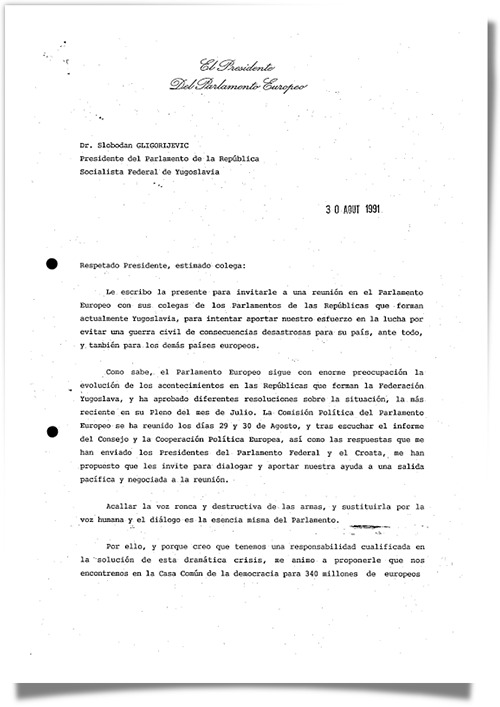
This letter received a reaction prompting Enrique Barón Crespo to organise an interparliamentary meeting on the situation in Yugoslavia, held at the European Parliament in Strasbourg on 12 and 13 September 1991. At that meeting, the President of the Federal Assembly of the Republic of Yugoslavia, Slobodan Gligorijevic, and the Presidents of the Parliaments of Bosnia-Herzegovina, Croatia, Macedonia, Serbia and Slovenia outlined their positions and held discussions in the presence of Members of the European Parliament, taking as their basis a resolution adopted by the European Parliament on 11 September 1991 (link to the resolution - PDF).
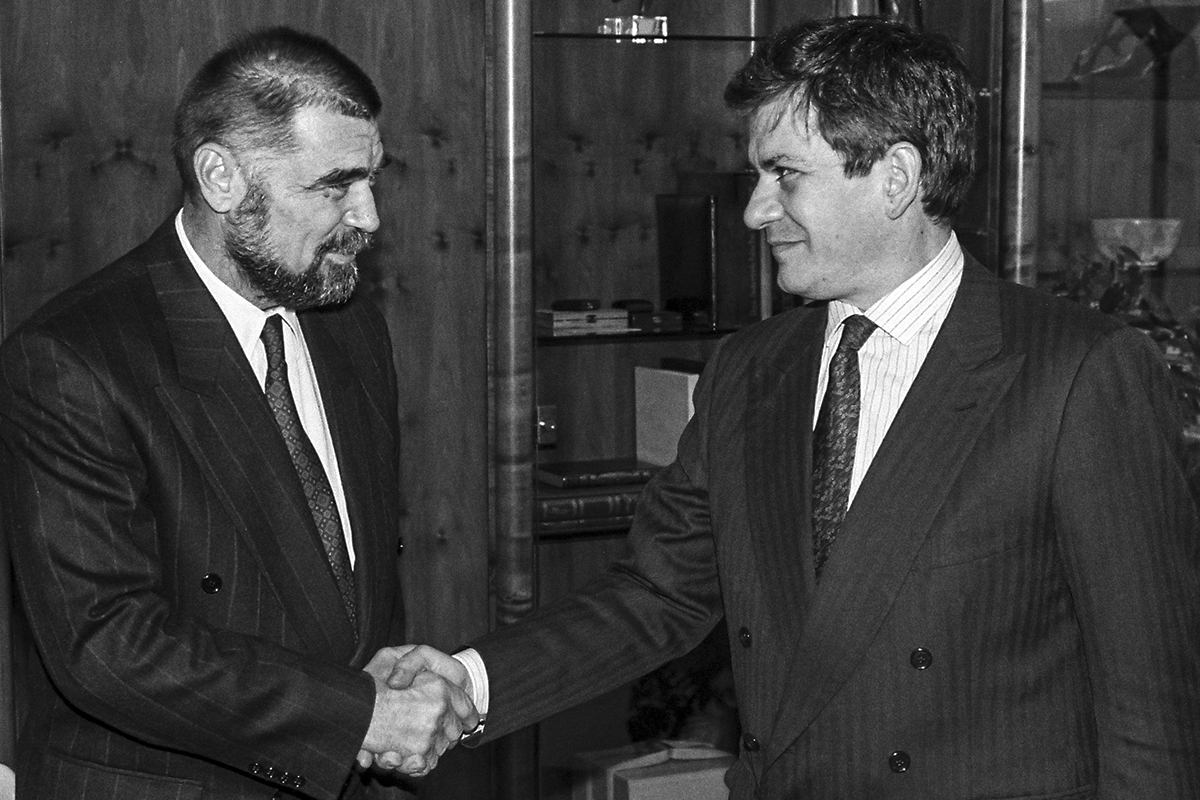 Official visit of Stjepan Mesic, President of Yugoslavia (L), and President of the European Parliament Enrique Barón Crespo (R) on 8 October 1991 in Strasbourg © European Union, 1991
Official visit of Stjepan Mesic, President of Yugoslavia (L), and President of the European Parliament Enrique Barón Crespo (R) on 8 October 1991 in Strasbourg © European Union, 1991
A joint declaration was adopted at the close of this interparliamentary meeting, condemning the acts of violence in Yugoslavia and urging the warring parties to abide by their commitments in the Hague Declaration, which stipulated that fighting should cease and reaffirmed the inalienable right of peoples to self-determination by democratic means.
“Aware of the higher interests of the citizens whom we represent, Convinced that it is incumbent upon us all to defend democratic values and human rights [...] [The parties] Unreservedly condemn the violence and calls for an immediate cessation of hostilities [...] Affirm that this tragic situation concerns all the people of Europe and their representatives who must do their utmost to achieve the defined objectives and, through dialogue, find appropriate solutions, respecting peace and democracy [...]”
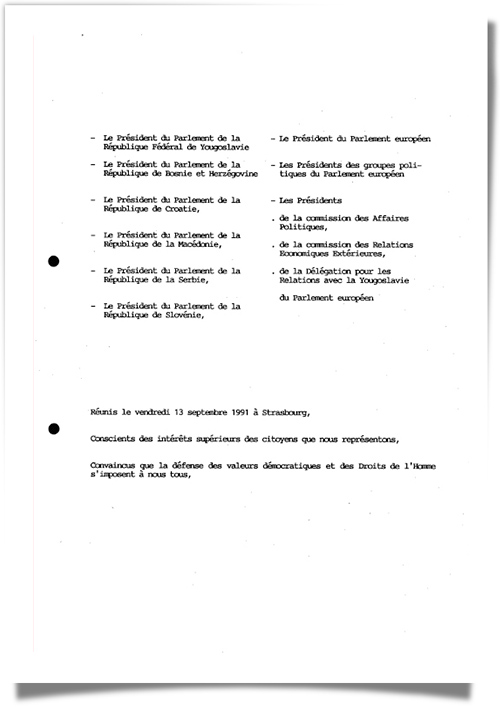
On 27 August 1992, the European Community set up the Badinter Committee to consider whether the Slovenian and Croatian Republics should be recognised. The committee declared Yugoslavia to be in the process of ‘dissolution’, which rendered the Yugoslav Constitution null and void and made secession a practical possibility. The European Union, as the main political partner and humanitarian aid donor, subsequently took the lead in implementing the plan for the reconstruction of the region on the basis of good neighbourly relations and cooperation.

